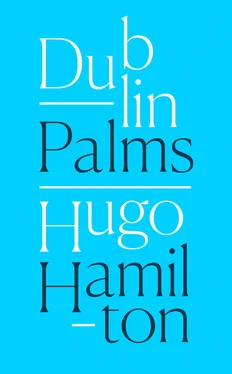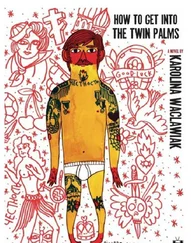I have a friend who went to Australia.
He has a gift for talking. His memory has legal accuracy, he studied law. He is tall, he speaks in a stride, it was hard to keep up. He was run off his feet revealing things he had heard about people, things about ourselves that we had forgotten, you felt good because your life mattered to him. He could remember Helen and myself in Berlin, the time I sang my sad songs in the street for passing pedestrians until a woman from the offices above came down and paid me to go away. He could remember Helen on the U-Bahn, a man staring at her love belly, the three of us walking arm in arm across Hermannplatz, she was carried along, not touching the street.
He got talking to people easily, people who normally avoided each other were glad to be in the same place together when he was around. He gave me the feeling of being in motion, being alive, being lucky, it was our responsibility to celebrate. His information had no false avenues. His grasp of human emotions was generous, you could trust him with your thoughts. I allowed him to put words in my mouth. I spoke so little. He did most of the talking for me.
If I could write the way he speaks, I thought, I would be at home anywhere in the world.
We stood at the bar in Kehoe’s pub. I was happy listening to the scattered voices. The twirl of a coin on the counter, a beer mat flipping upwards and being snapped between thumb and finger. Everything was worth remembering, the worn rung on the bar stool, the spill of beer, the discontented faces of barmen on the wrong side of life. Things you overheard – No, fuck off, I owe you a pint. Snatches of nonsensical conversation that didn’t join up – the permafrost, my twist, Galileo, you’re due a refund. I loved that disjointed prose of the city, the abstract way in which something serious could be said in one part of the pub and people burst out laughing in another corner.
In a flood of enthusiasm, I told my friend I was trying to write. The manner of the announcement made it look as though I had no other choice, each one of us was trapped inside a book, the only way out was to write it down. At one point, thinking that I had the speed of his voice in mine, I pulled out a couple of pages from my bag for him to look at.
It was a section in which I described my silence. Waking up at night, wandering around the house where I grew up while everyone else was asleep. I became an intruder in my own home. Avoiding the creaks on the stairs. Not switching on the light. Looking around at the objects belonging to my family, the photographs on the mantelpiece, the town where my mother came from. In darkness, it felt as though I had walked into a strange house where I didn’t belong, the people who lived there had nothing to do with me. When the light started coming up at dawn, I caught sight of myself in a mirror. A strange figure I could not recognise, standing alone among the furniture and family possessions I knew so well. The reflection was not mine, it belonged to someone else, from nowhere.
He read it quickly. He said it was a bit raw, a bit honest. I saw no difference between his honesty and my honesty, only that everything he revealed had time to evaporate overnight. His stories were full of travel. The names of cities and rivers in faraway places.
He told me that he was leaving. We met and got drunk together. I missed him. His departure left me short. It removed the map. I no longer had any connection to the talking grid. He carried crucial information away to Australia with him in his shirt pocket. Doesn’t every emigrant do that? I thought to myself. Each person leaving takes away some essential knowledge that cannot be replaced by those left behind.
A photograph sent from Fremantle shows him wearing a bright blue shirt with floating vintage cars and palm trees. By the angle of his shoulders, he must be standing in the kitchen, opening a bottle of wine. Everything I attempt to say from that point on is directed like a shout across the world to a distant reader, waiting for the echo to come back.
Another episode with my teeth. Brought on this time by an attempt to write in German. My mother’s tongue gave me no protection. It was like pointing at myself. I became the accused. I took on the banality of somebody waiting to be caught and brought back to face trial. Normal words like bread and butter were extremely childish and at the same time loaded with pre-existing meaning. Milk was no longer milk. I could not use the word ground, nothing to do with land, territory, domain, home, belonging.
Writing is no place to hide.
It may have been the mashed potato, it scalded my front teeth. I knew what was coming and didn’t want my children to see me flinching. I got up from the table and left the house. Helen asked me where I was going but I had no idea. I walked as far as the lighthouse, it felt as though I was biting granite, my teeth scraping at the pier wall. Then I walked in a great hurry back to my mother, asking her if she had ever seen Hitler.
Once, she said.
Where?
Düsseldorf, she said.
She was in a department store looking at fabrics, feeling for quality, when everybody suddenly rushed out the door onto the street. He’s here, somebody shouted. The wind sucked them out, shop assistants included, leaving the till behind unguarded. She was the only person left inside. The crowd was lined up along the street, people on their toes, straining to see over shoulders, leaning in the direction where the cavalcade was expected to appear. The buildings were decorated with swastikas, everybody waving flags.
My mother used the expression – torn along.
It was her way of describing that moment on the street, what her uncle the Lord Mayor had warned her about, how everyone was being swept along by a euphoric feeling, by a longing inside each breast for a strong leader after so much disaster. She said the people had an appetite for lies and false facts. It helped them to hide what they didn’t want to know about themselves. They stood waving with great happiness in their hearts, they had been promised holidays in the mountains, family trips on a cruise liner, their country was winning again, they were expecting heaven on earth.
Inside the abandoned department store, my mother said she felt unsafe. She was afraid they would accuse her of stealing. She went outside and saw a small woman who had just left the shop with a broad new hat. The cavalcade passed by with Hitler in the back of an open-topped car. A small man with a modern moustache. It was known that he had a warm smile and his eyes had the ability to look inside each person.
The moment was brief, my mother said. She stood at the back of the crowd. She hardly knew it was Hitler, only that the woman in front, wearing the wide-rimmed hat, not paid for, the label was still attached, turned around with great excitement in her voice and said – did you see him?
After the cavalcade passed by, everyone went about their business. The woman with the new hat walked away down the street. Another woman crossed the street wearing a new tweed coat, the gifts of Hitler. My mother was working in Düsseldorf by then, in an employment office, she had some money, she went back into the department store to buy gifts for her sisters, the two eldest ones were already married, things they needed. She said it was a time of high fashion. A time you could not easily trust men. Most of them were in the Nazi party. Her boss was a senior Nazi member, he was married, always asking her to go for a drink.
A lot of the women in Düsseldorf looked elegant and provocative, she said. The style was to show how perfectly rounded your backside could be. They wore tight dresses that turned the bottom into a walking globe, spherical cushions in bright colours and stripes. She laughed and sang the line of a pop song from the time, about a woman walking down the street with her round bottom swinging and all the monkey men turning around to look at her.
Читать дальше












